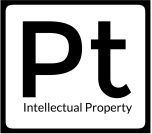US Supreme Court declines to hear ParkerVision's patent infringement lawsuit against Qualcomm4/1/2016
On March 28, 2016, the US Supreme Court denied ParkerVision's petition for Writ of Certiorari, which requested a review of the July 2015 decision of the Court of Appeals for the Federal Circuit, in its case against Qualcomm (the San Diego based company). The question of law set forth in the Writ of Certiorari was "[w]hether and under what circumstances an inconsistency in expert testimony permits a court to set aside a jury verdict and grant the losing party judgment as a matter of law."
In 2013, ParkerVision's case at the lower court resulted in a $173 million jury verdict in its home state of Florida against Qualcomm. In this early ruling, Qualcomm was found to have infringed 4 of ParkerVision's patents (US Patent Nos. 6,061,551; 6,266,518; 6,370,371; and 7,496,342). The jury verdict was subsequently overturned by U.S. District Judge Roy Dalton in Jacksonville on June 2014. Judge Dalton ruled that ParkerVision’s evidence relied too much on speculation regarding what Qualcomm chips do, and there was “an insufficient evidentiary basis for the jury’s infringement verdict.” ParkerVision appealed the case to the Federal Circuit, which it ultimately lost, prompting ParkerVision to file a petition for Writ of Certiorari to the Supreme Court. The denial of the petition effectively ends this case between the two parties. Unaffected by (and independent of) this denial, ParkerVision has instigated an action against Qualcomm, Apple, LG and Samsung pending at the US International Trade Commission (ITC). The ITC case, which was filed in January 2016, involves a different set of patents. The United States Patent and Trademark Office (USPTO) has established the Enhanced Patent Quality Initiative (EPQI) in an effort to strengthen work products, processes, services, and measure patent quality at all stages of the patent process. 11 programs have been created.
Pre-examination and search enhancement programs
Prosecution enhancement programs
Post-examination enhancement programs
Evaluation enhancement programs
Learn more here: http://www.uspto.gov/patent/initiatives/enhanced-patent-quality-initiative-0 |
© COPYRIGHT 2024
Disclaimer
Disclaimer
